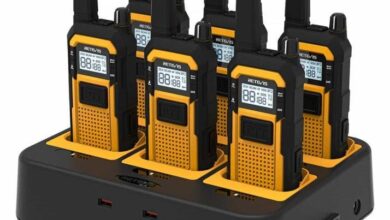How Modularity Is Reshaping Everyday Devices in 2025

Customisable. Repairable. Built to last. A new wave of consumer products is being designed to adapt rather than expire. Modularity, once a niche engineering term, is quietly becoming a feature people look for, whether they’re buying a vape, a phone, or even a sofa.
Rather than being stuck with devices that are obsolete within a year or two, shoppers in 2025 are increasingly drawn to things they can tweak, upgrade, or fix. And while most products still aren’t fully modular, the ones that are tend to stand out, especially to buyers who care about value, sustainability, and long-term use.
Adapting to New Priorities
Modular design is essentially a system of parts: items built in such a way that one section can be removed or swapped without replacing the whole thing. For years this kind of flexibility was mainly found in computing or industrial settings. But today, it’s working its way into everyday consumer goods.
There are a few reasons for the shift. The first is cost. Many consumers, particularly younger ones, are tired of constantly replacing gear just because one piece wears out. Modular designs offer a simple solution: change the battery, swap the casing, upgrade the component.
There’s also growing awareness about electronic waste. Products that are easy to repair or reconfigure are seen as more responsible. And there’s a third factor: people feel more connected to items they can modify. Being able to update or maintain a product gives users a stronger sense of ownership.
Vaping Products Join the Movement
One of the clearest signs of this trend can be seen in the UK’s vaping sector. In response to disposable vape bans and consumer pressure, brands have shifted towards refillable or partly modular kits. Rather than binning the whole device, users can now swap pods and even coils while keeping the main unit.
The Hayati Rubik 7000, for example, is a rechargeable vape with a swappable pod system. Instead of buying multiple single-use devices, users can replace just the pod, cutting down on cost and waste. The system is simple enough for beginners, but flexible enough for those who want more control over how they vape.
Larger devices are also following this route. Products like the Crystal Pro Switch 30K, with replaceable parts, are built for longevity, with a focus on high capacity and modular parts. Users get longer-lasting performance without giving up customisation, which is a balance that reflects what many buyers are looking for now.
Tech That Grows with You
Consumer electronics have seen similar changes. Many of today’s smart gadgets, including headphones, watches, and speakers, are being designed to support upgrades and repairs. Some laptops now let you change the storage or RAM yourself. Other products offer parts you can switch out for cosmetic or functional reasons: straps, covers, camera modules, even batteries.
This approach is catching on with major tech brands. Some, like Samsung and Apple, now offer self-repair kits for certain models. Meanwhile, upstart companies like Framework, a laptop manufacturer, have built their entire identity around modularity, offering laptops with nearly every part user-replaceable.
Companies are responding with clearer documentation, accessible spare parts, and better support for DIY fixes. Even software updates are part of the picture, with some brands extending support windows to keep older hardware useful for years. The result is a shift in expectations: tech that adapts, evolves, and sticks around, instead of being replaced at the first sign of wear.
Health and Beauty Get Personal
Outside tech, modular thinking is popping up in more surprising places. Skincare tools like LED therapy masks now offer swappable light panels. Electric toothbrushes and razors come with interchangeable heads for different needs, like shaving, exfoliating, or deep-cleaning.
Refillable beauty products are also gaining traction. Instead of buying entirely new containers, shoppers can just slot in a replacement cartridge. The appeal is partly environmental, but it also fits a broader move toward personalisation: choosing what works for your own skin or routine, not just what’s on offer.
Wellness brands are tapping into this, too. From home fitness kits with modular weights to supplements delivered in custom packs, consumers want solutions they can adjust over time.
Living Rooms, Kitchens and Everything Between
The logic behind modular design isn’t limited to gadgets. Furniture makers like IKEA have embraced it too. Sofas can now be expanded, reoriented or reupholstered to fit changing needs. Modular kitchen units are built to let people adjust layouts or upgrade appliances without replacing entire setups.
Even lighting is getting smarter: base systems can be expanded with new fixtures or tech as preferences shift. It’s all part of a broader push to make products that can evolve with their users, not be discarded when life changes.
Rethinking What We Expect from Products
Modularity isn’t just a design tweak; it hints at a shift in how we think about stuff. People aren’t just chasing the latest version anymore. They want things that last, that they can tweak or fix themselves if needed. What used to be seen as a bonus, like being able to swap a part or upgrade something, now feels more like a basic expectation.
That doesn’t mean people want DIY kits for everything. The best modular systems hide their complexity behind simple use. Once piece replaces another with ease. A battery clicks into place. The point is not to complicate, but to empower.
As this mindset spreads, from personal tech to home essentials, it’s clear that people aren’t just buying what’s available. They’re buying for how they want to live. And increasingly, that means choosing things that grow, change, and last.




